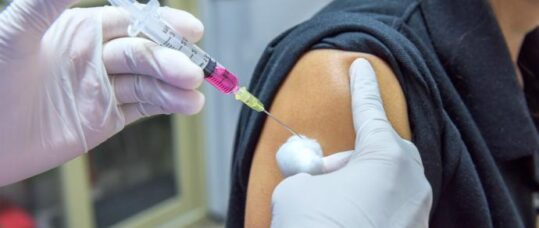HPV vaccine has reduced infections by 90%, finds PHE-backed study

The HPV vaccine has resulted in an almost 90% reduction in the number of HPV infections in women since 2010, a study backed by Public Health England has concluded.
The study collected just under 15,500 vaginal swabs between 2010 and 2016 from women aged 16-24 who attended their GP surgery or community sexual health services for chlamydia screening. The swabs were then tested for HPV.
Related Article: New digital support for community nurses in 10-year plan
The researchers found that the prevalence of HPV infections, which cause the majority of cervical cancers, fell by about 80% between 2010 and 2016 in women aged 16-18.
Prevalence also fell by 89% in women aged 19-21. Prevalence in 2007/2008, the year before the vaccination was introduced, was 18% and 17% respectively for these age groups.
The results were strongly associated with increasing vaccine coverage, authors said.
Related Article: Nurse had to ‘freeze’ PPE during pandemic to re-use in care home, Covid inquiry hears
Their paper said: ‘Among ages offered HPV vaccination, we have demonstrated clear reductions in infections with the HPV vaccine types since the introduction of the HPV vaccination program in England, with greater reductions in younger women (with higher vaccination coverage and vaccinated at a younger age).’
Dr Mary Ramsay, head of immunisations at Public Health England, said: ‘These results are very promising and mean that in years to come we can expect to see significant decreases in cervical cancer, which is currently one of the biggest causes of cancer in women under 35.
Related Article: Tell us what practice nursing means to you and potentially win £1,000
‘This study also reminds us how important it is to keep vaccination rates high to reduce the spread of this preventable infection.’

See how our symptom tool can help you make better sense of patient presentations
Click here to search a symptom


The HPV vaccine has resulted in an almost 90% reduction in the number of HPV infections in women since 2010, a study backed by Public Health England has concluded.



